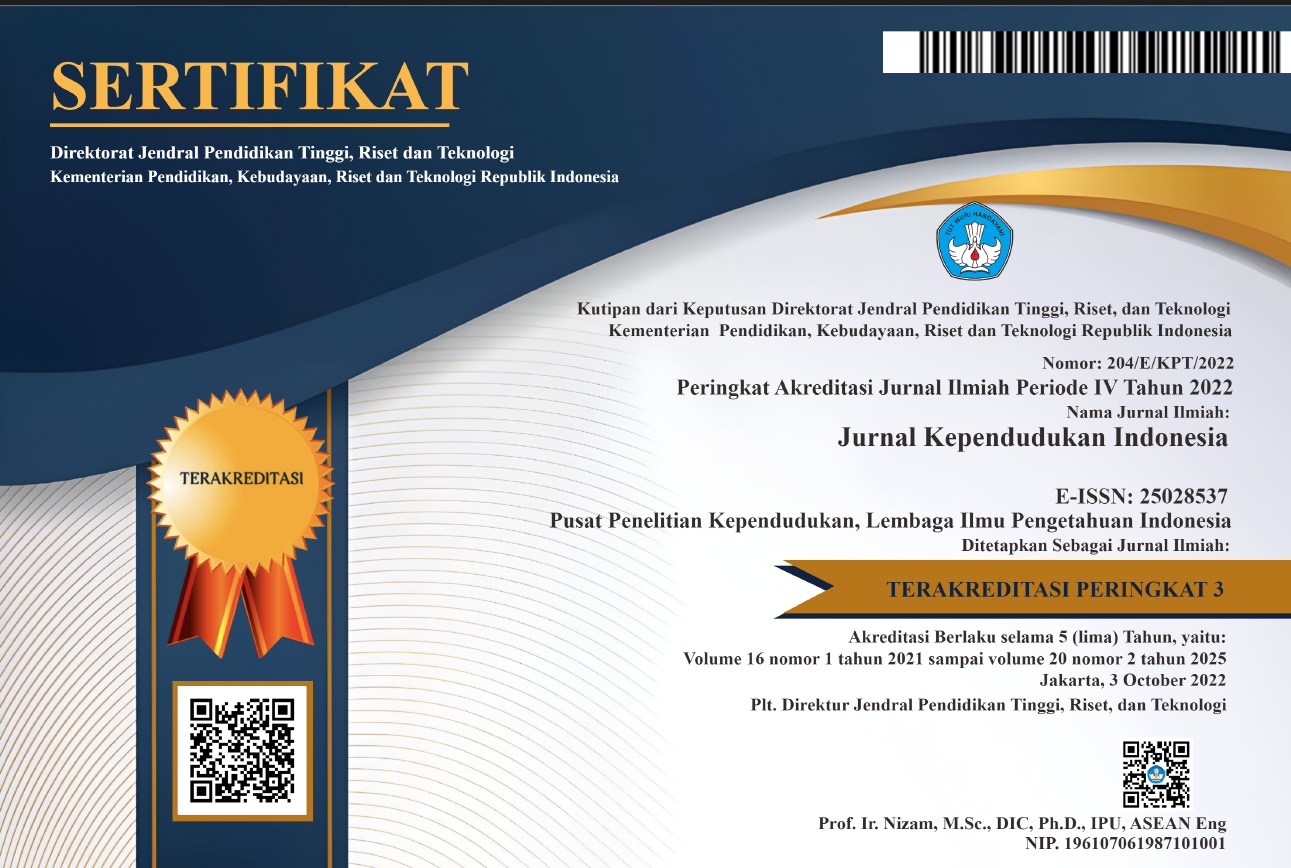Towards a policy agenda for population and family planning in Indonesia, 2004-2015
DOI:
https://doi.org/10.14203/jki.v1i1.152Keywords:
population, family planning, population policy, IndonesiaAbstract
Family planning is a vital component of a developing nation's policies aimed at sustainable development and improving quality of life. During the 1970s and 80s rapid population growth was widely seen as the main population policy issue in developing countries, and most developing countries, including Indonesia, introduced national family planning programs as the preferred way of dealing with the issue. As the population of Indonesia approaches the advanced phase of its 'demographic transition' it is time to reflect on the future of family planning in this country and set new policy objectives for the short term (2004-2006), medium term (2005- 20 l 0) and long term (2005-20 l 5). It must also be remembered that family planning is-no matter how important-only one component of population policy; and the significance of this component vis-a-vis other development efforts changes with time.
Downloads
Published
How to Cite
Issue
Section
License
Copyright (c) 2006 Author(s)

This work is licensed under a Creative Commons Attribution-ShareAlike 4.0 International License.

